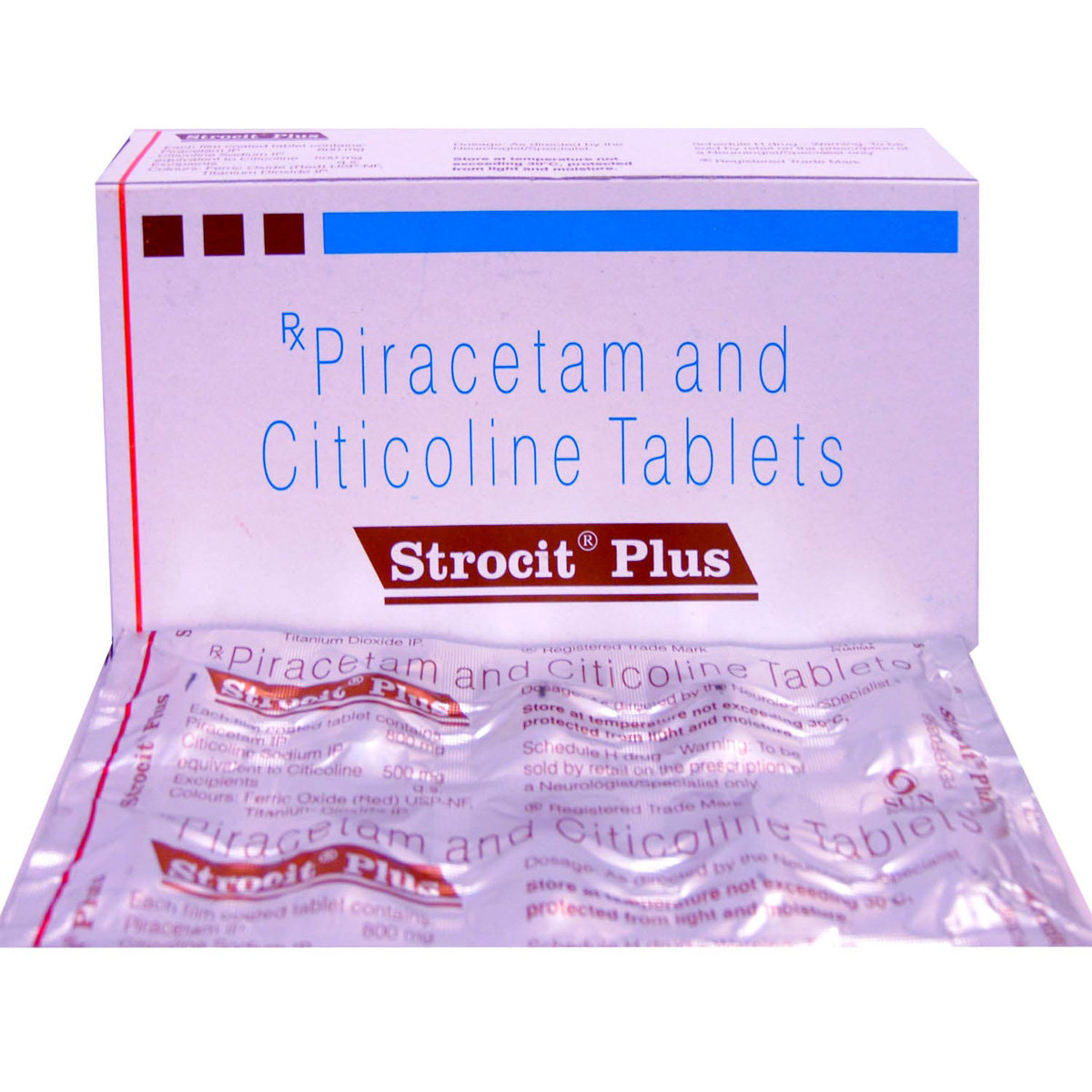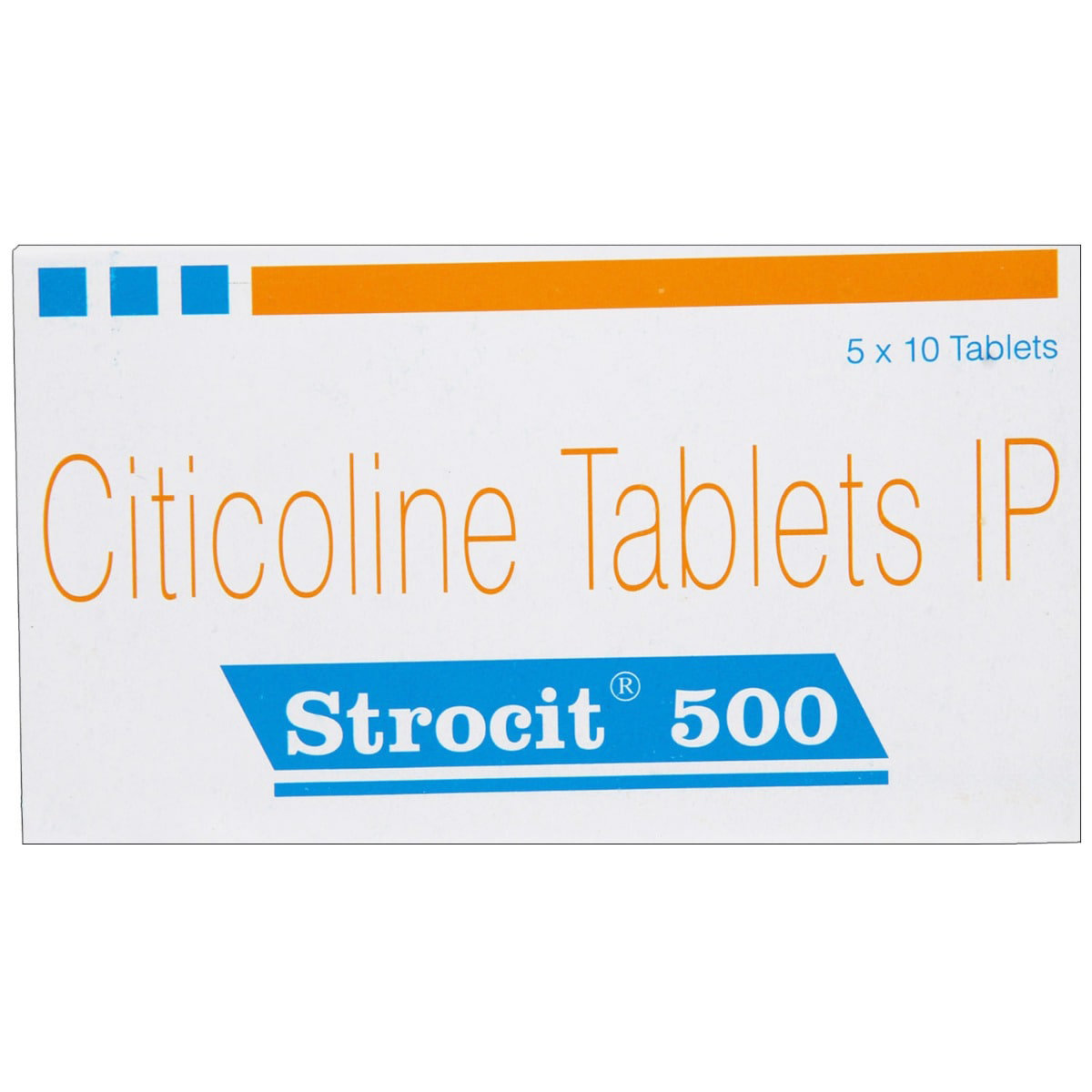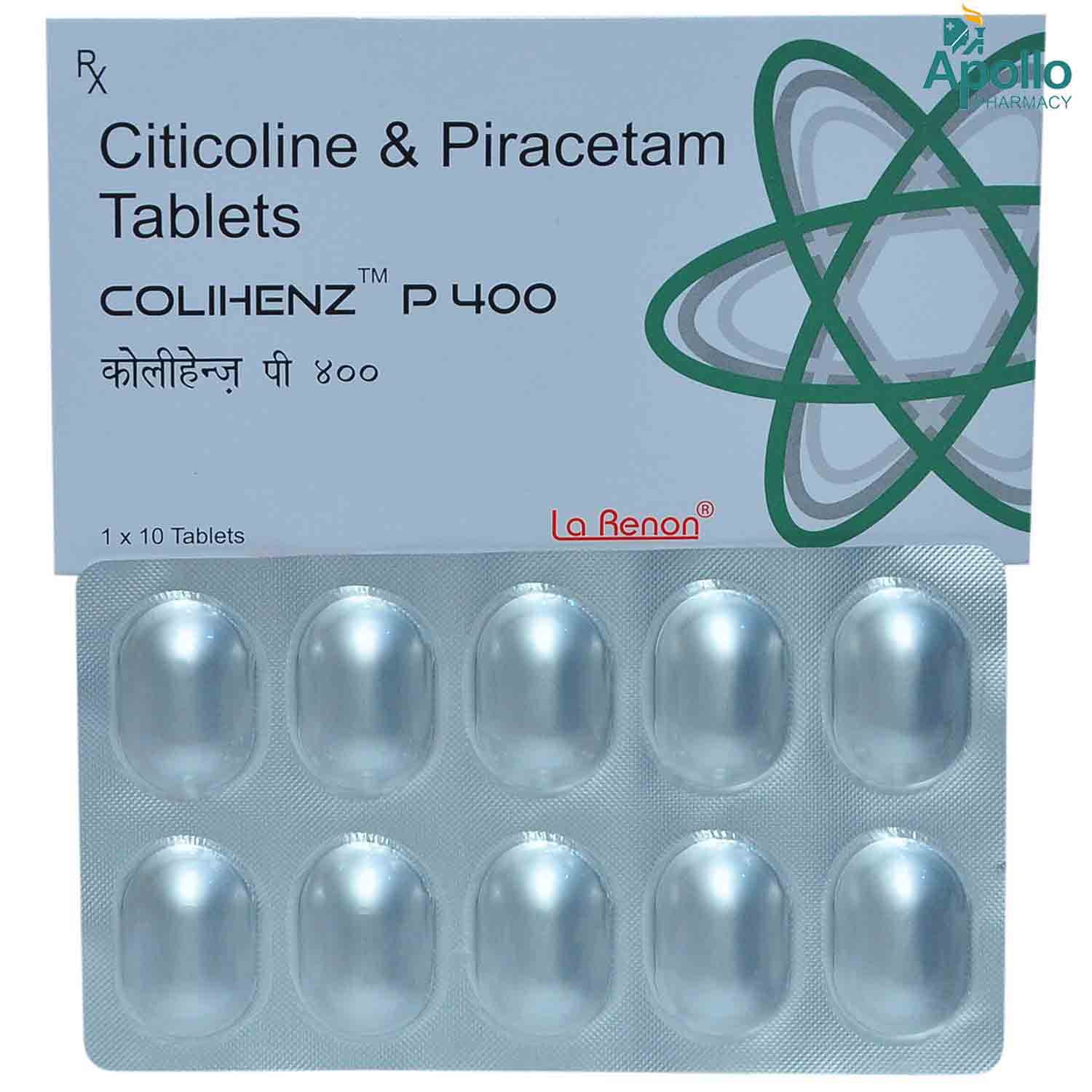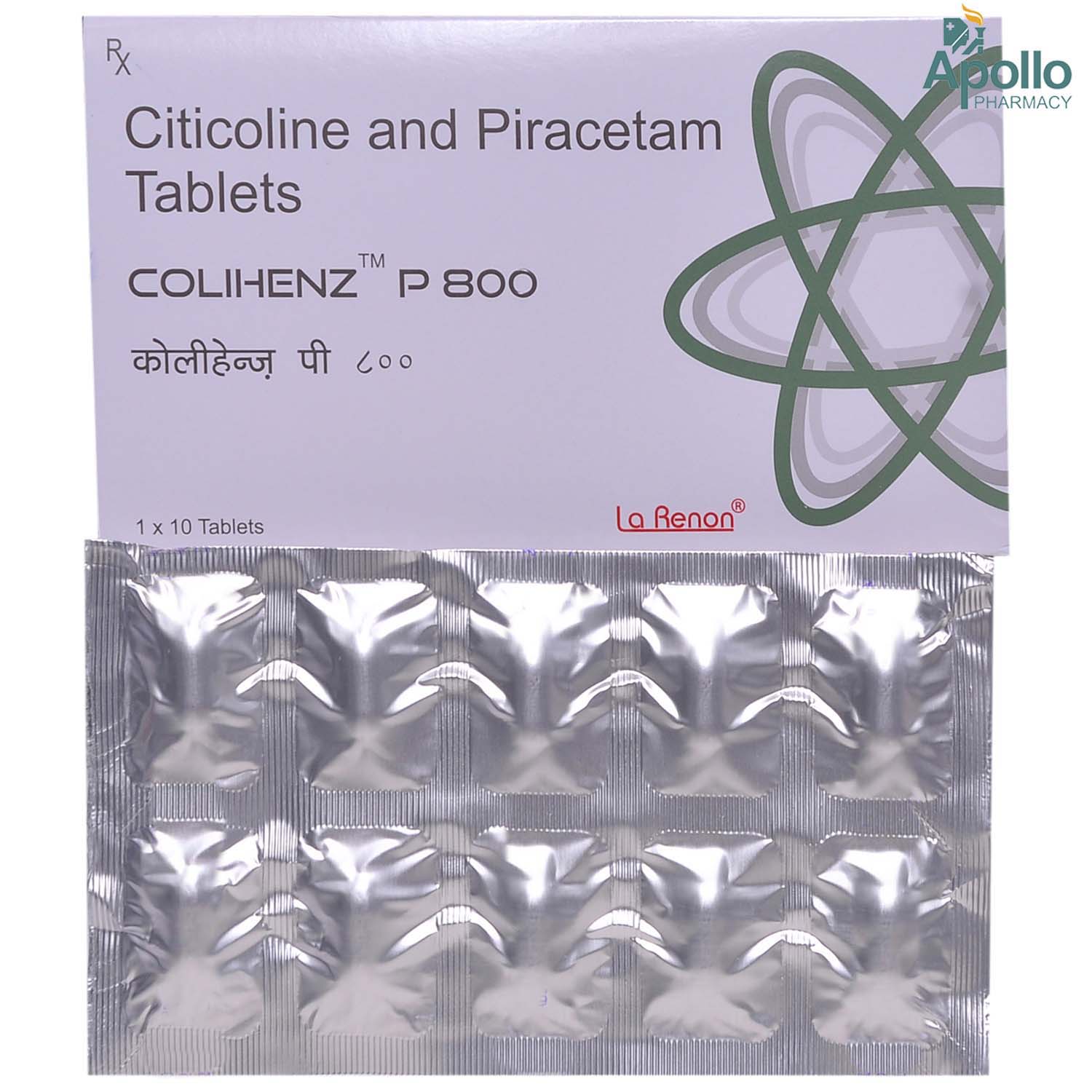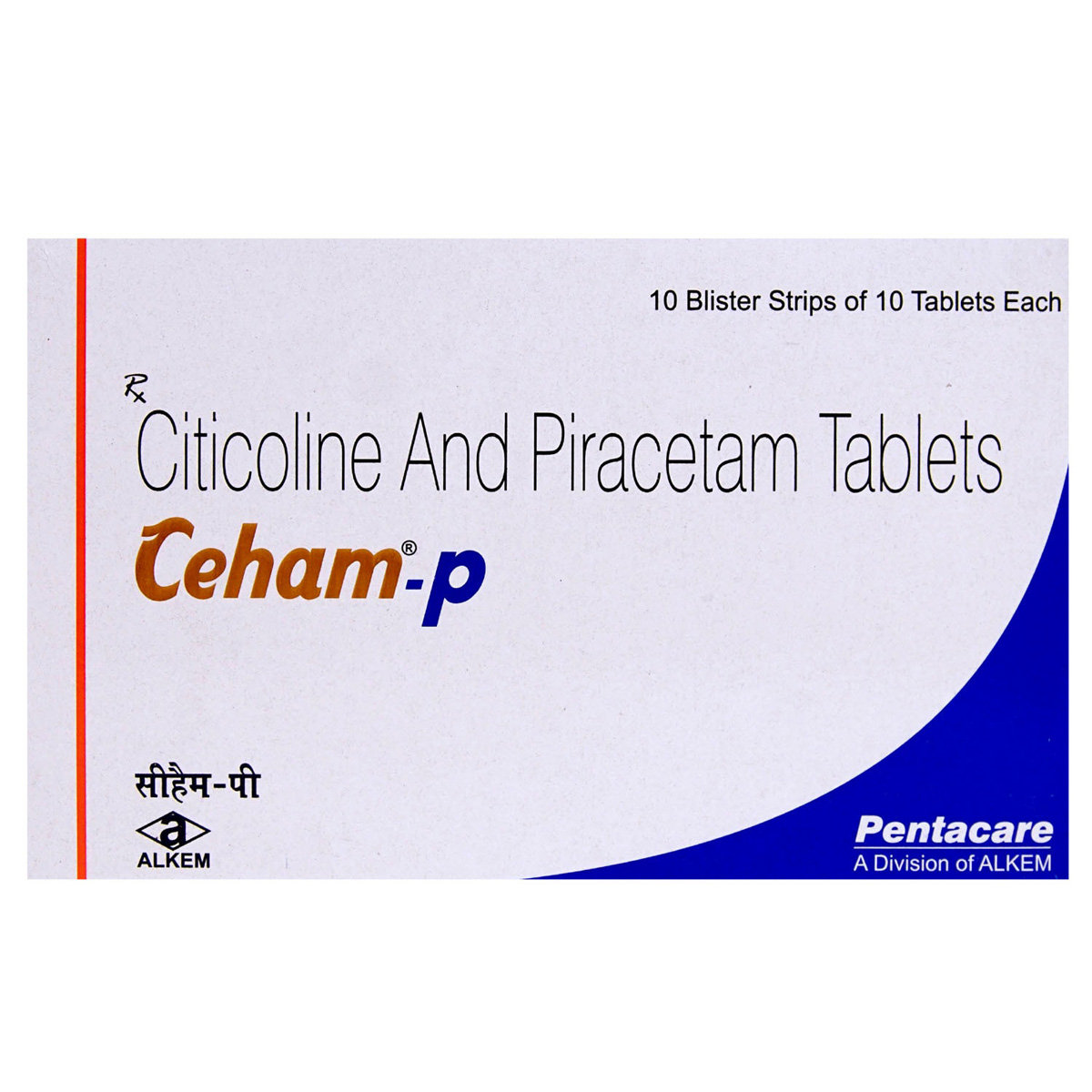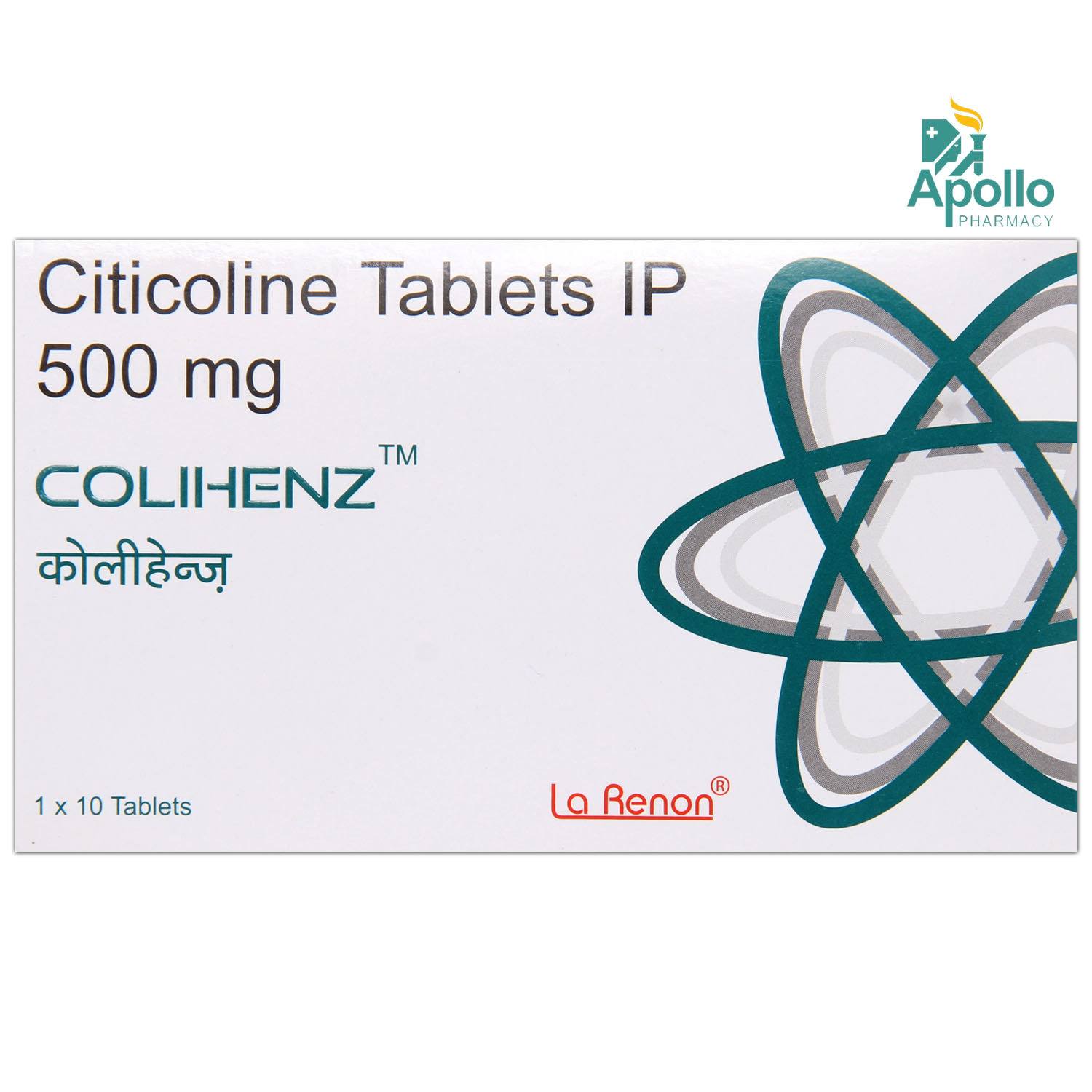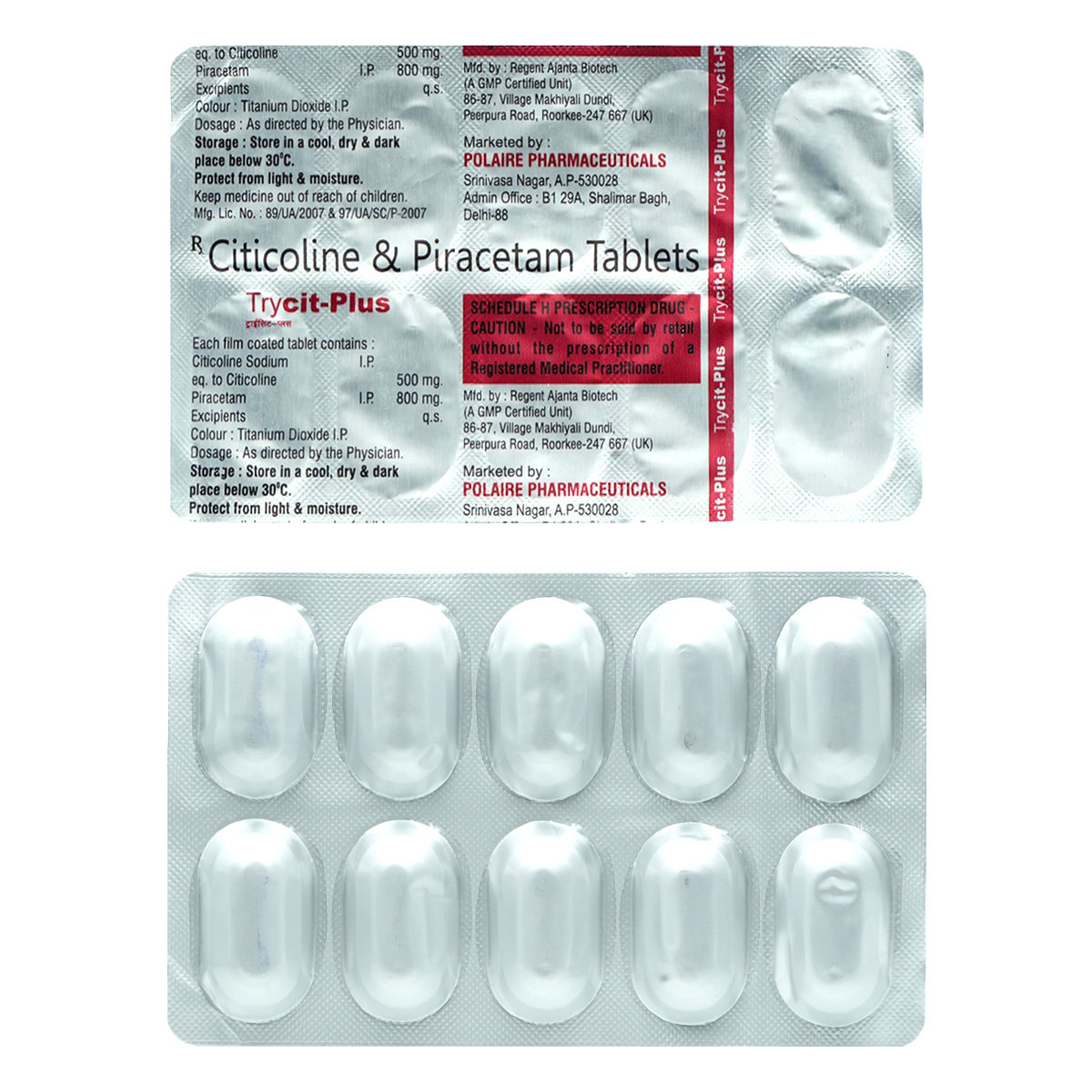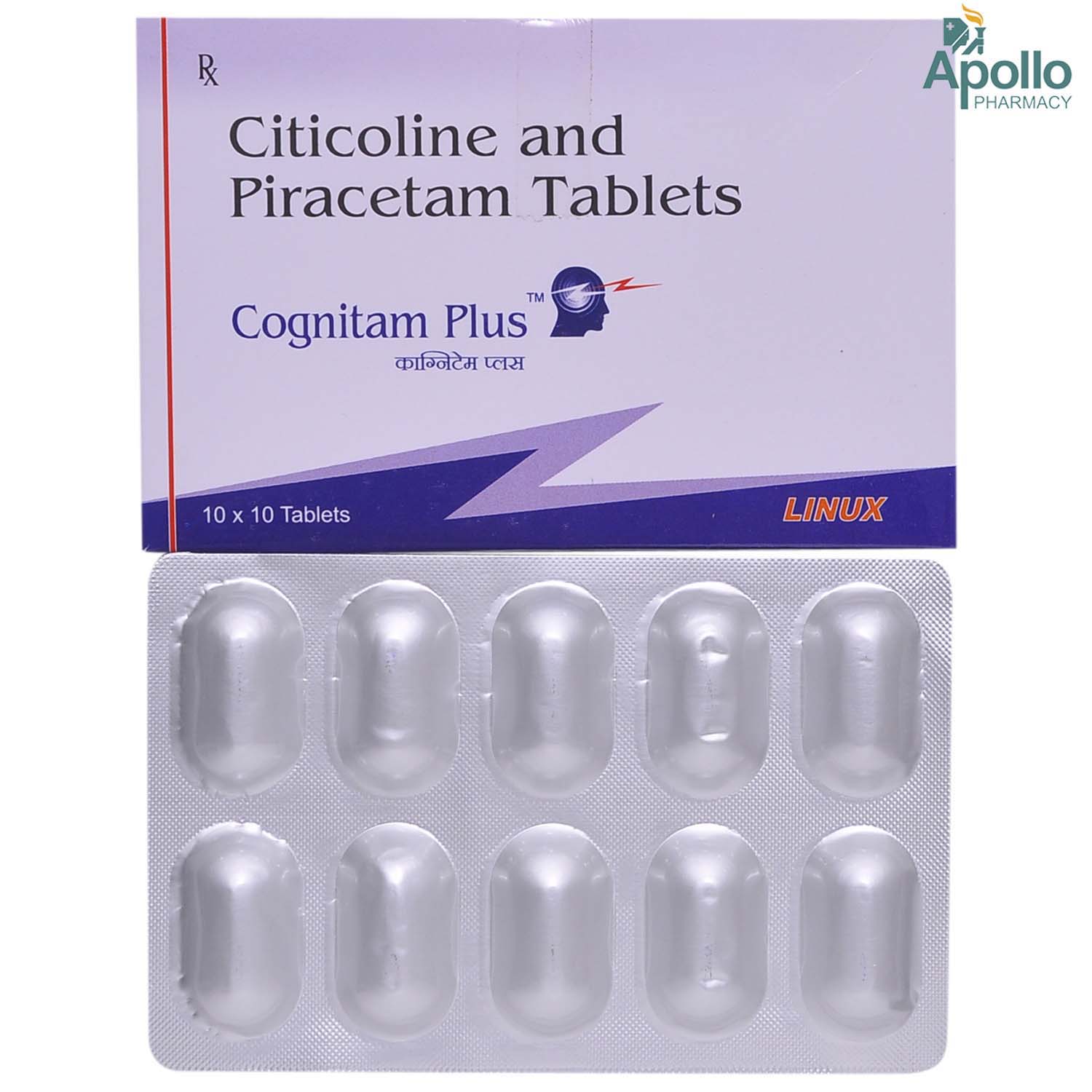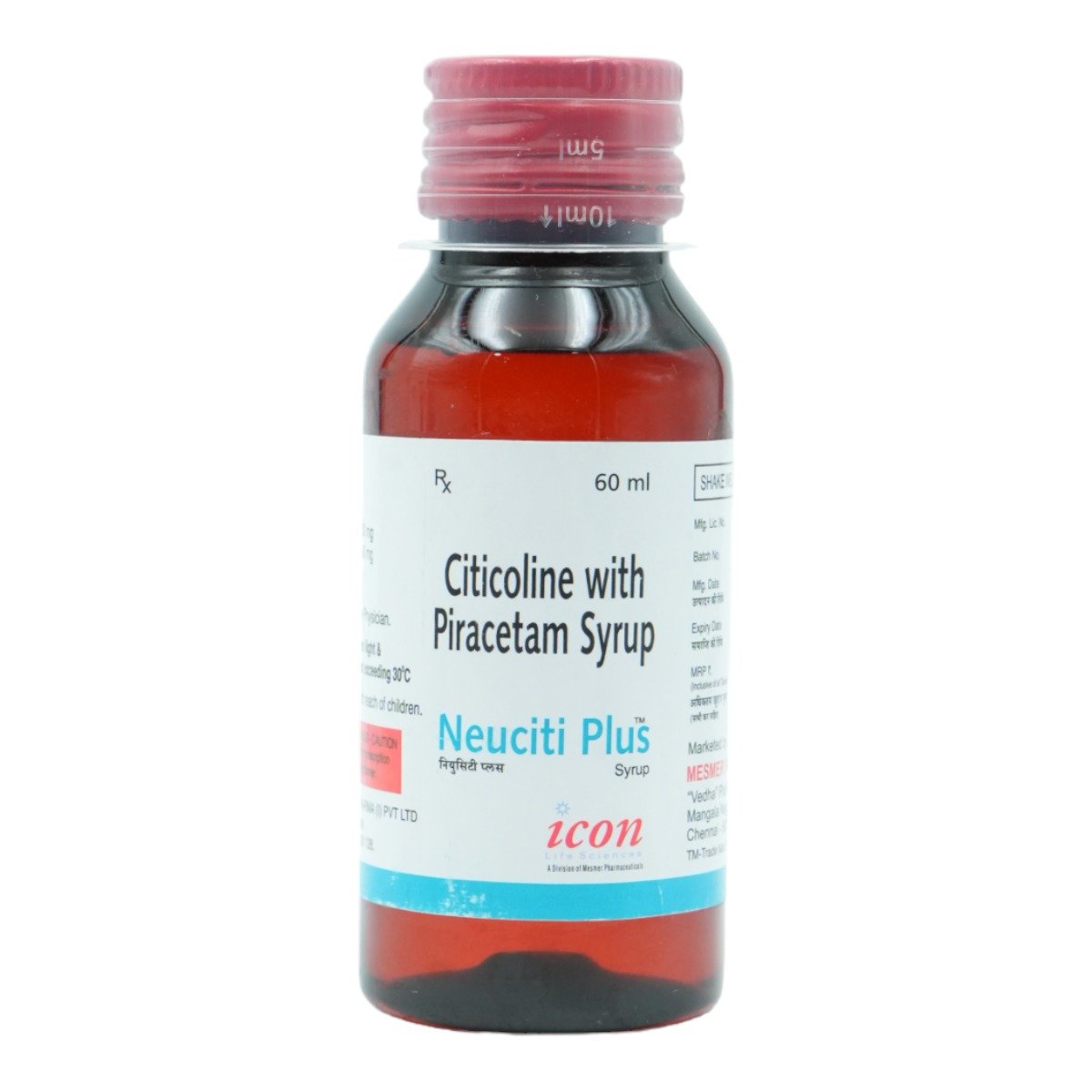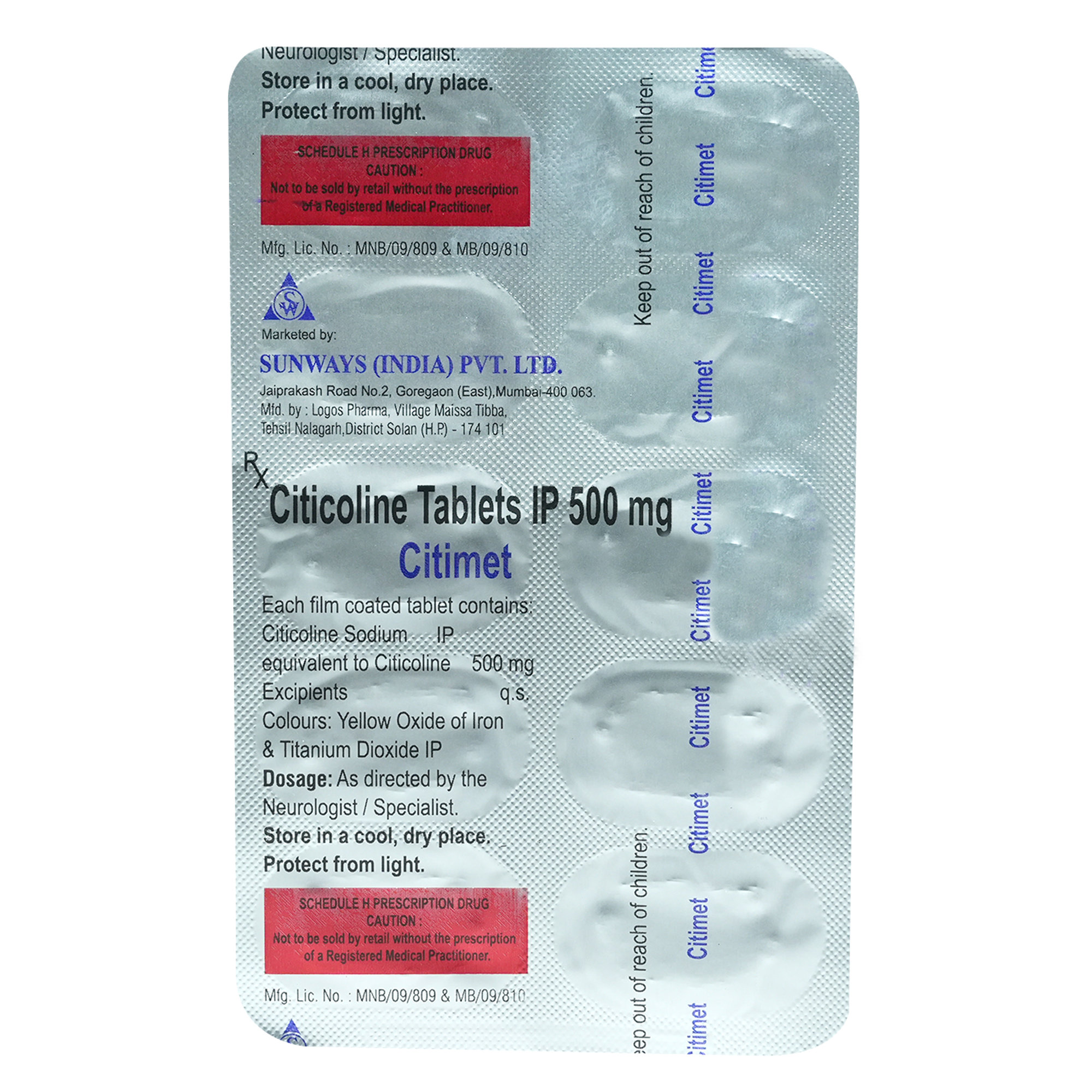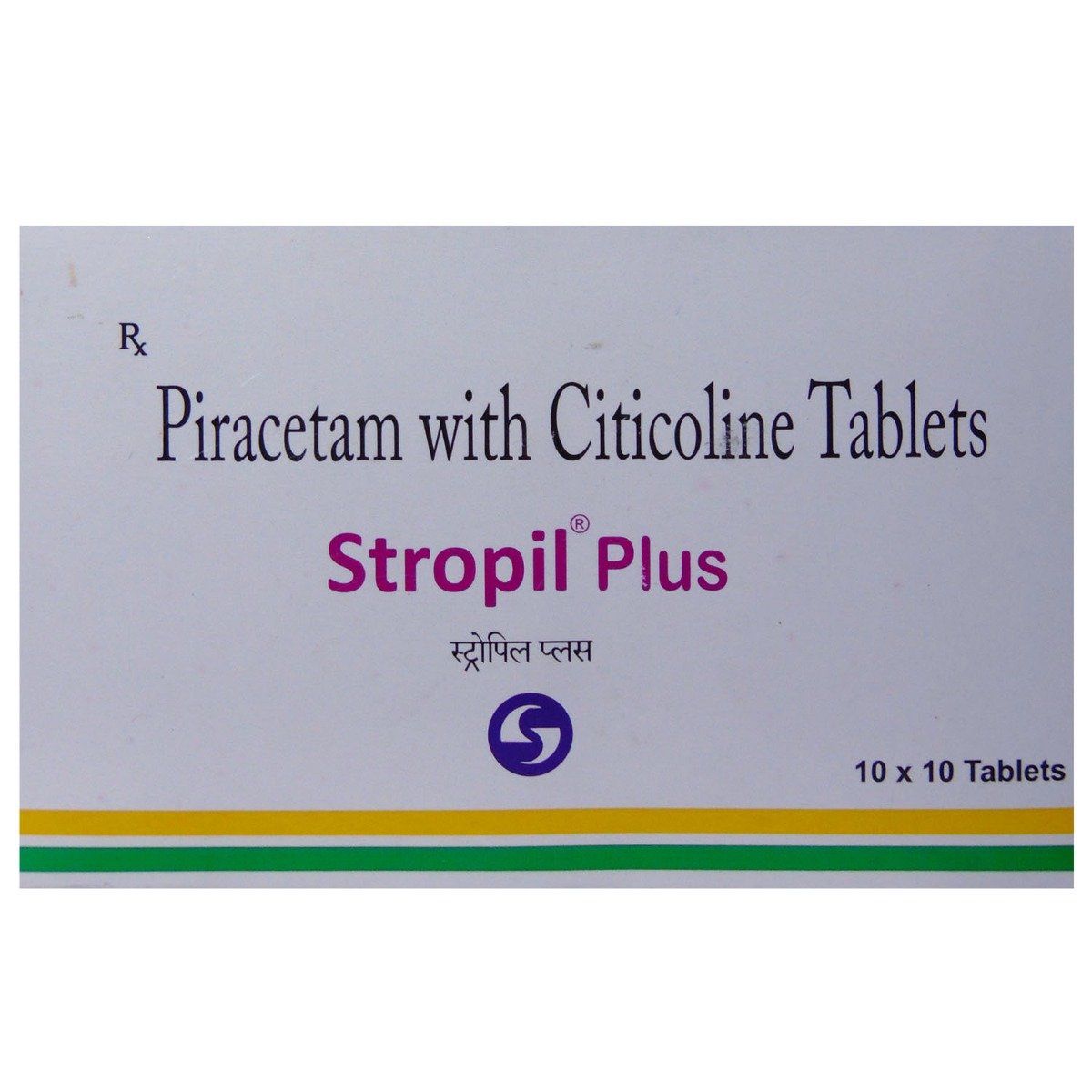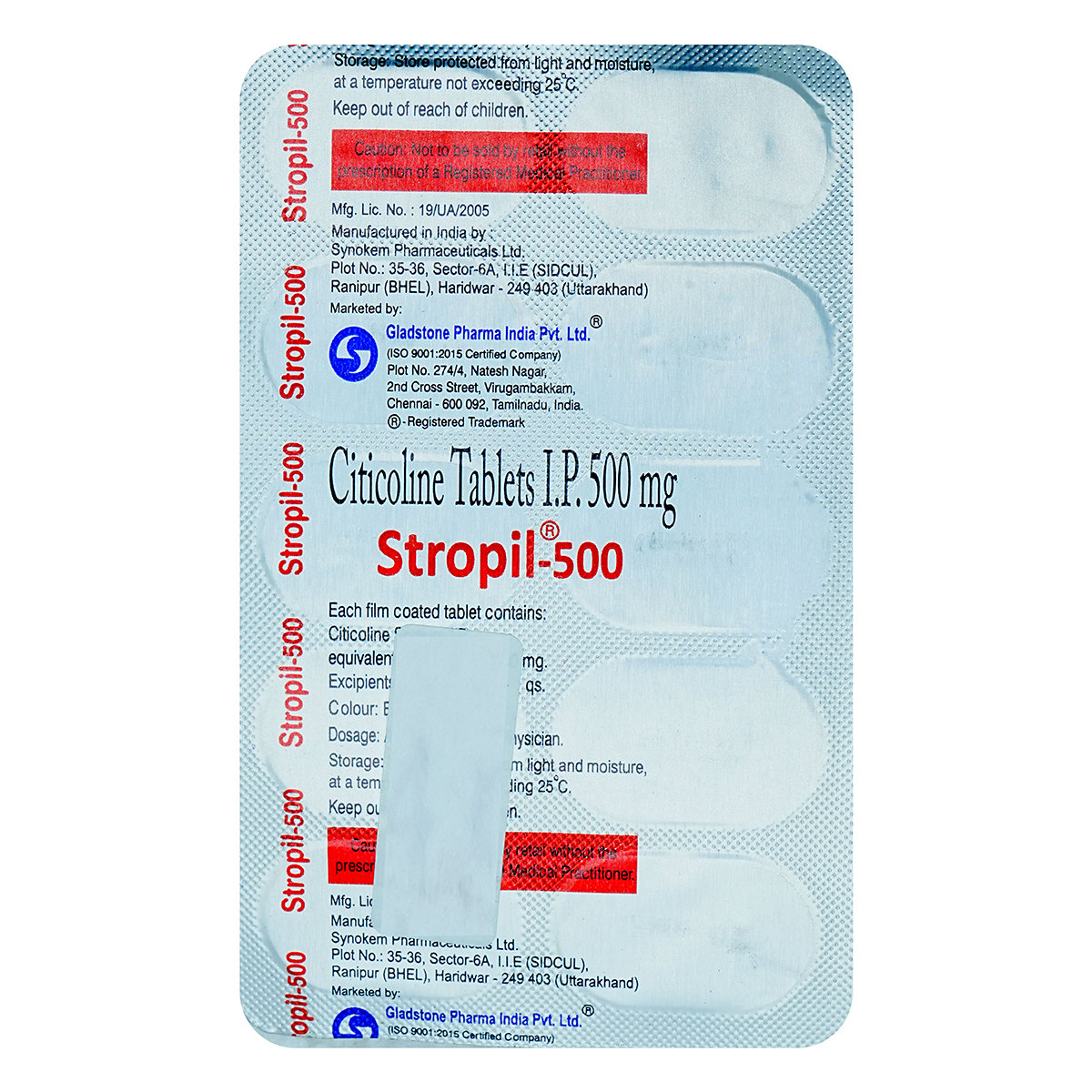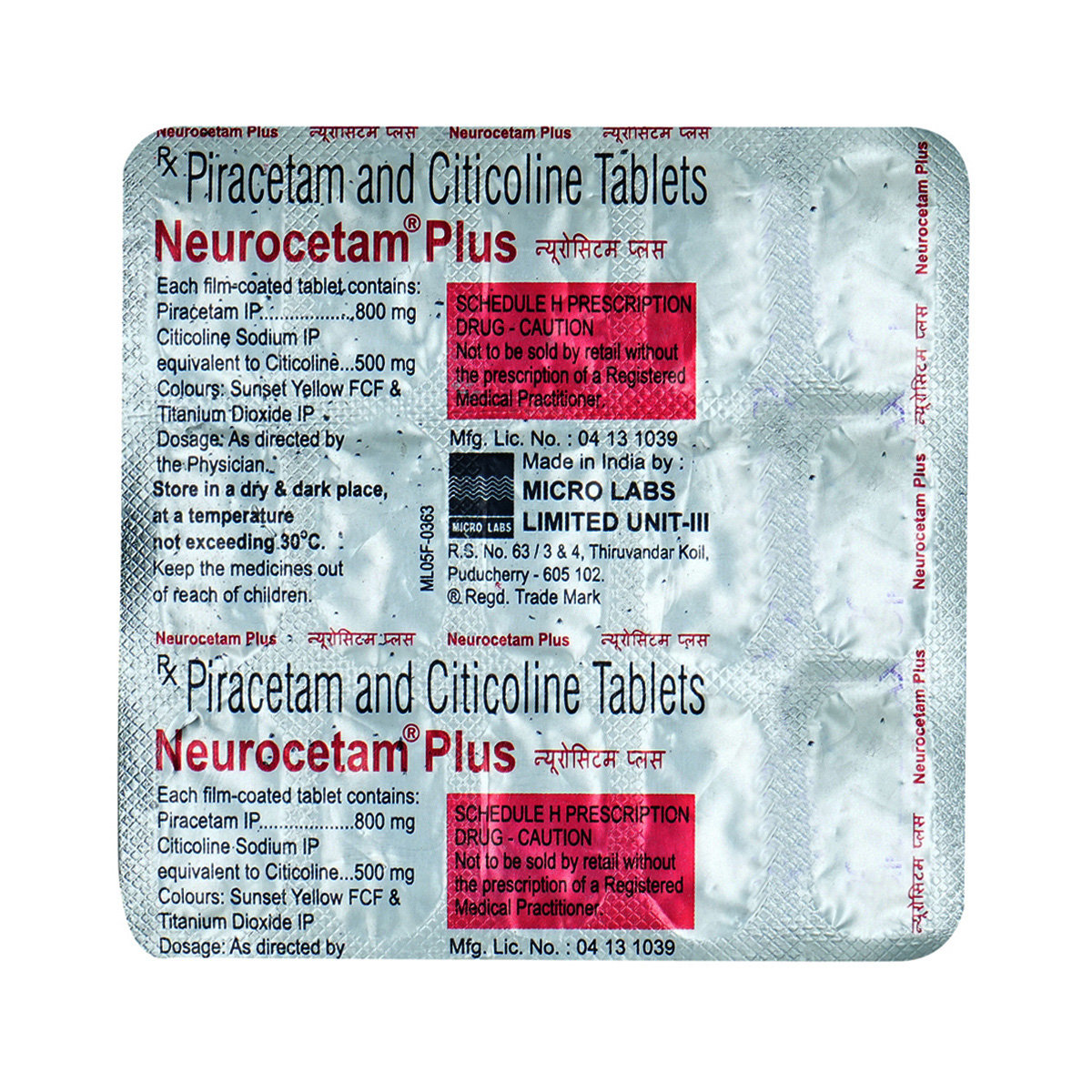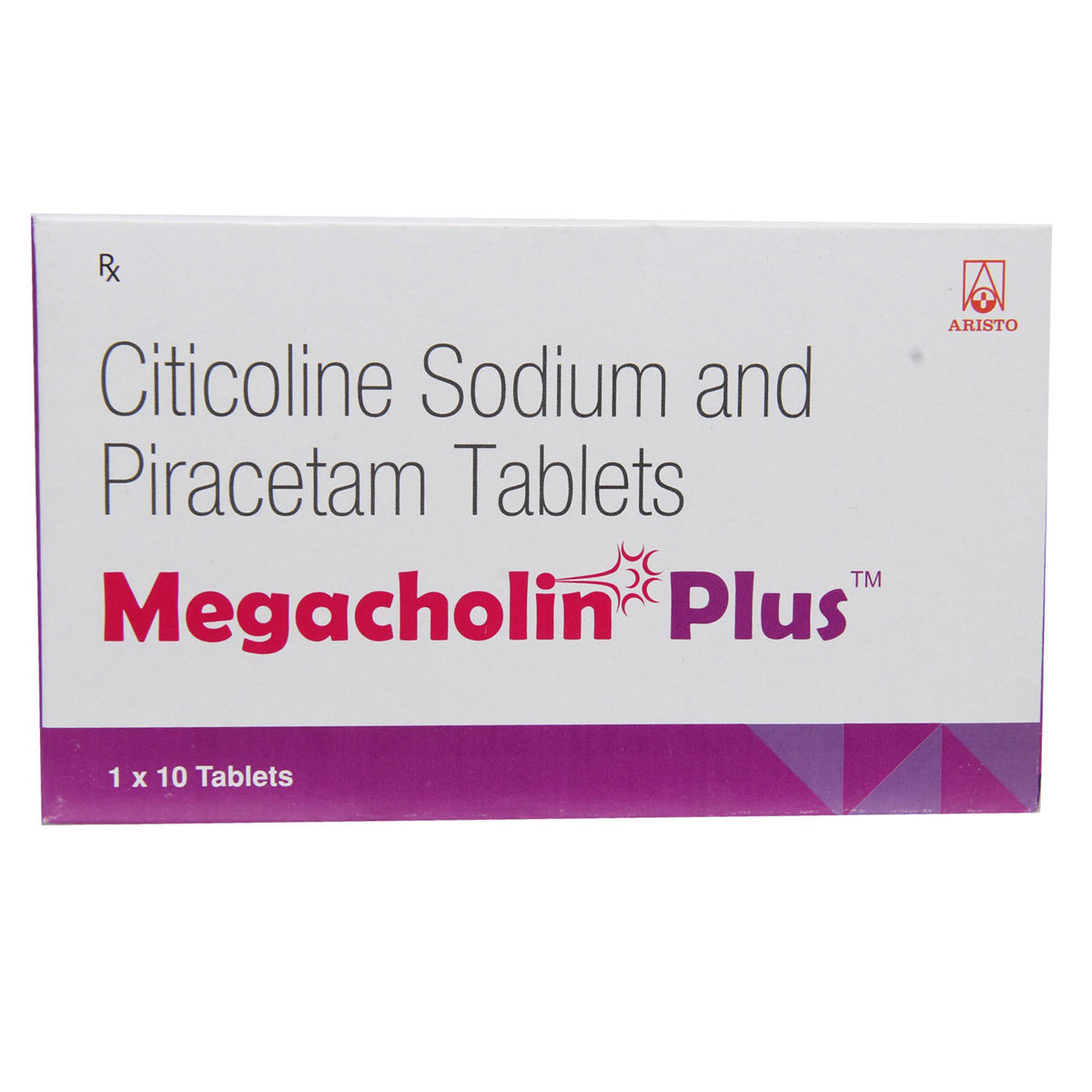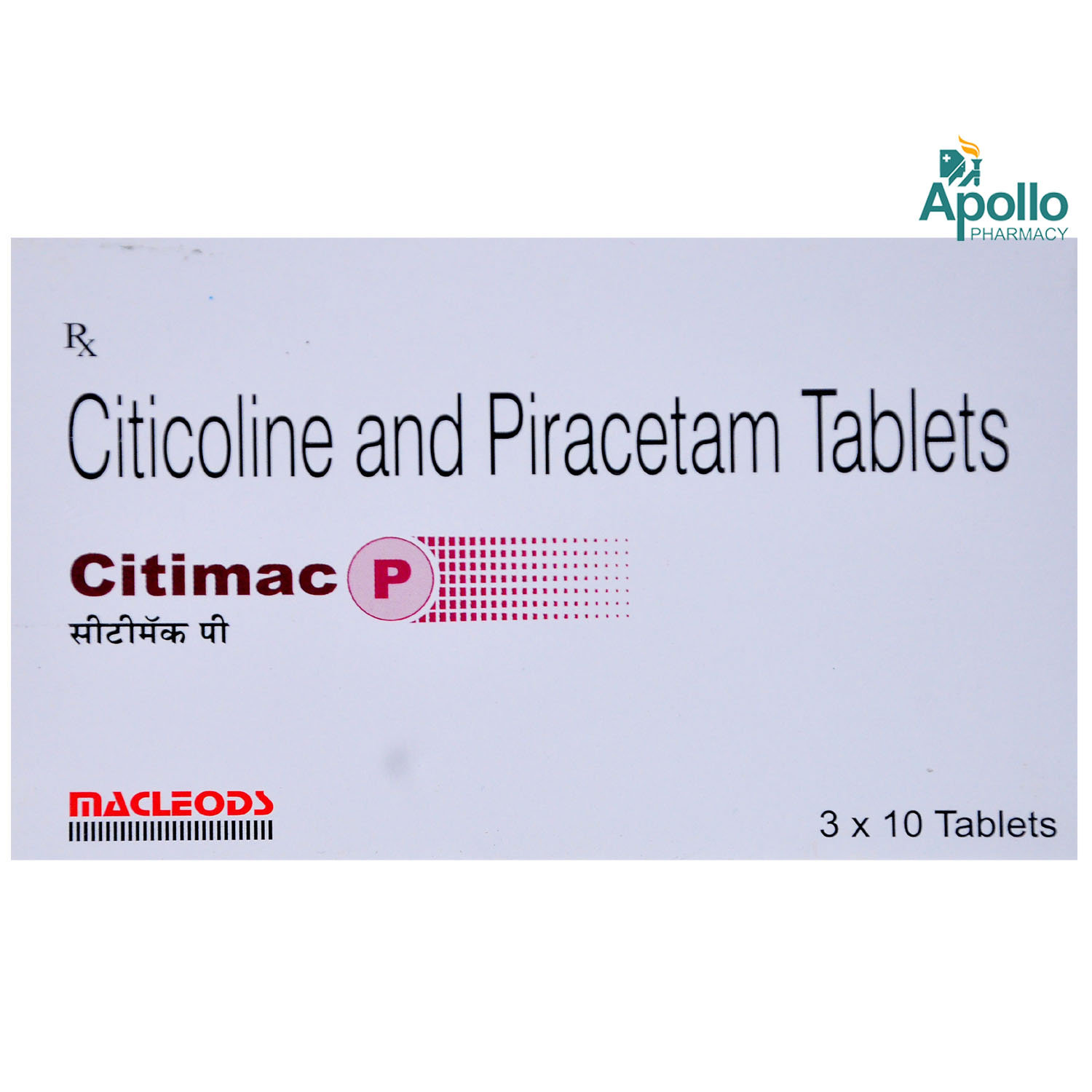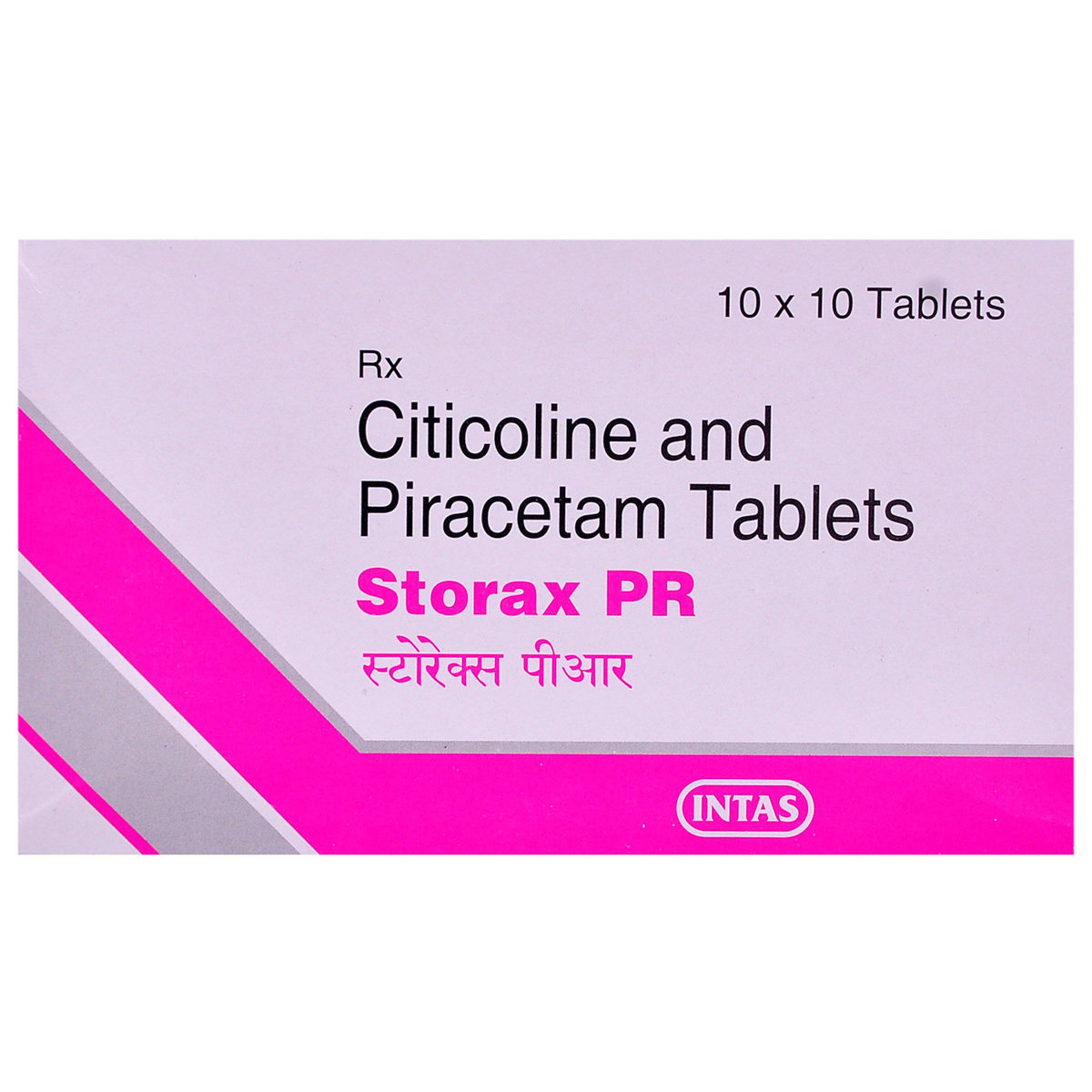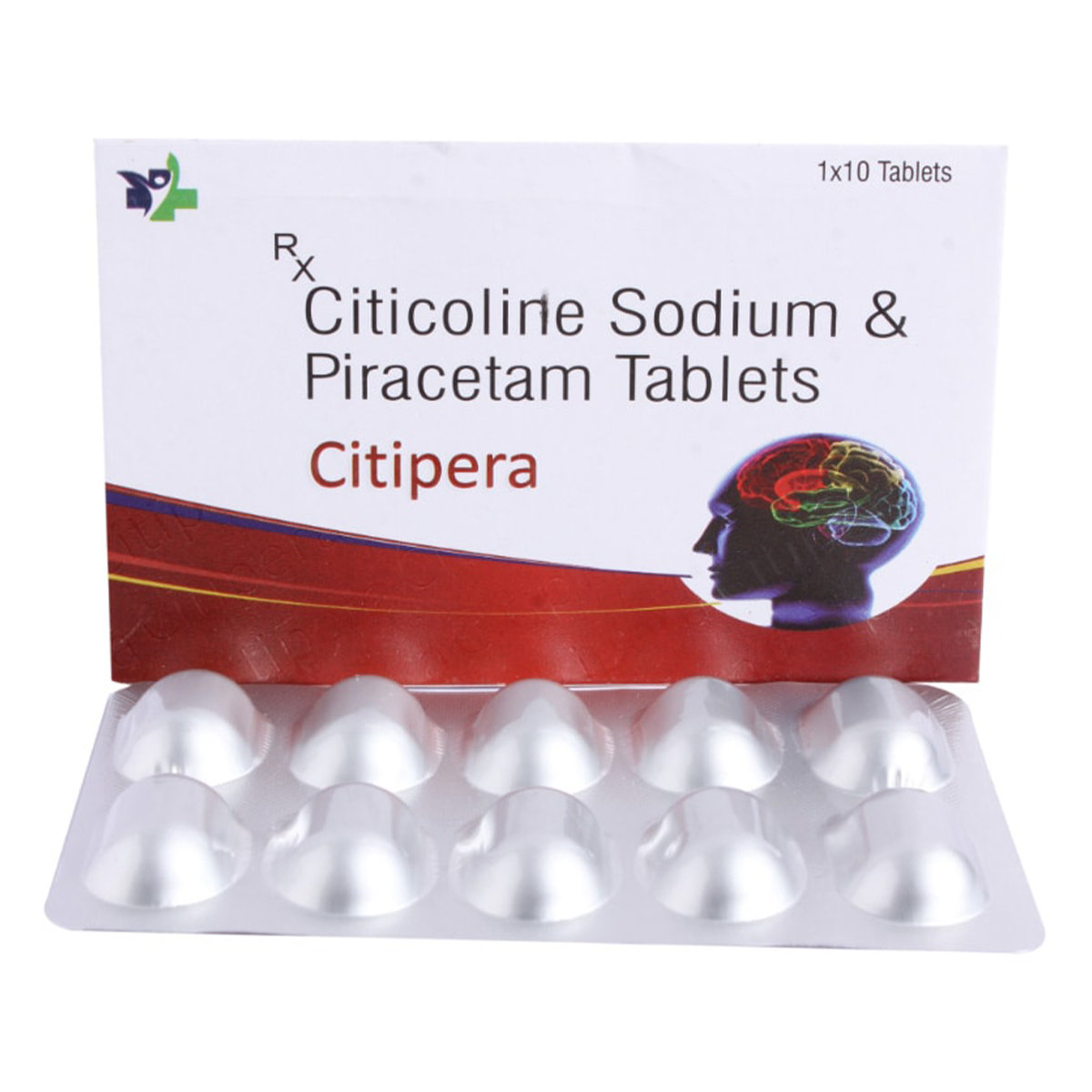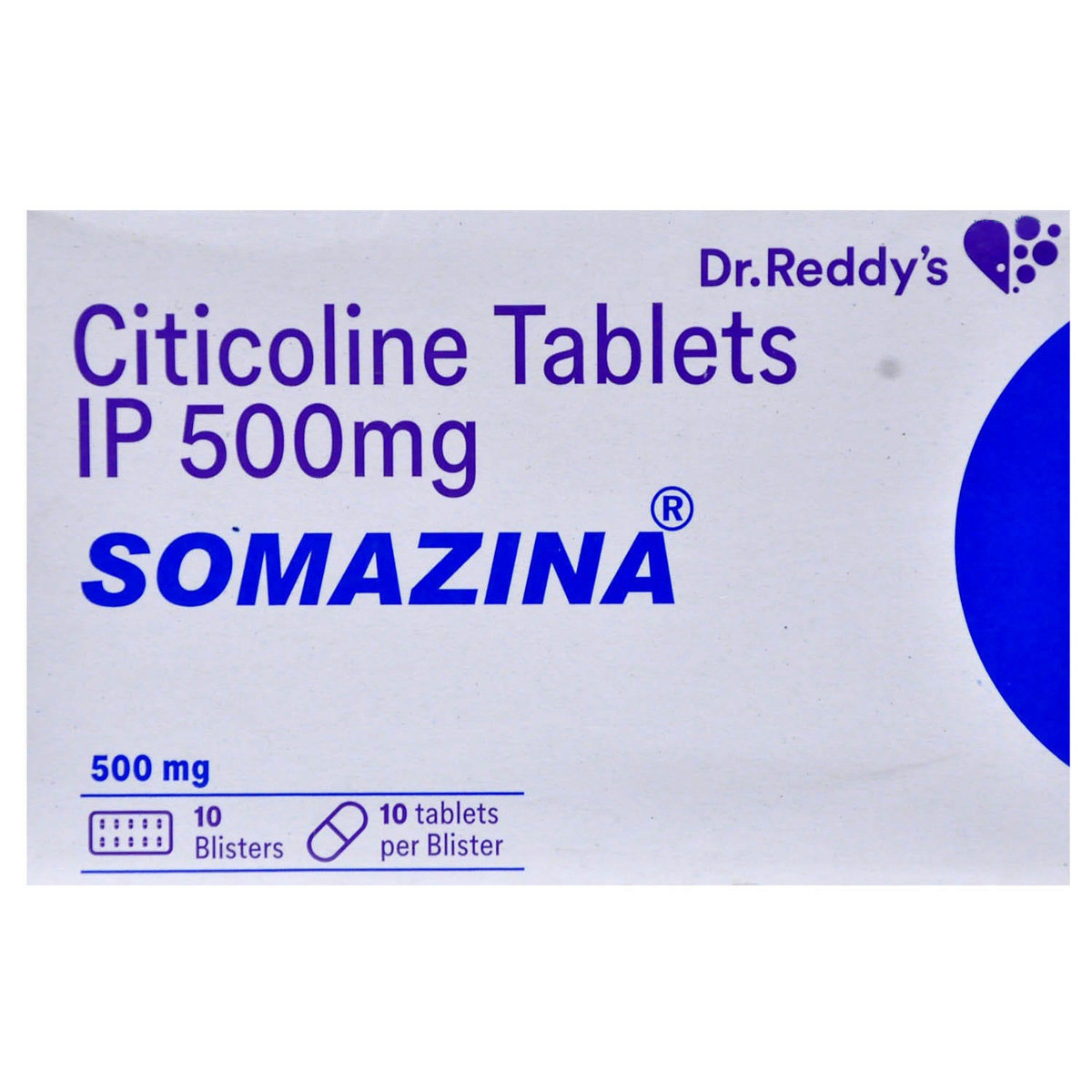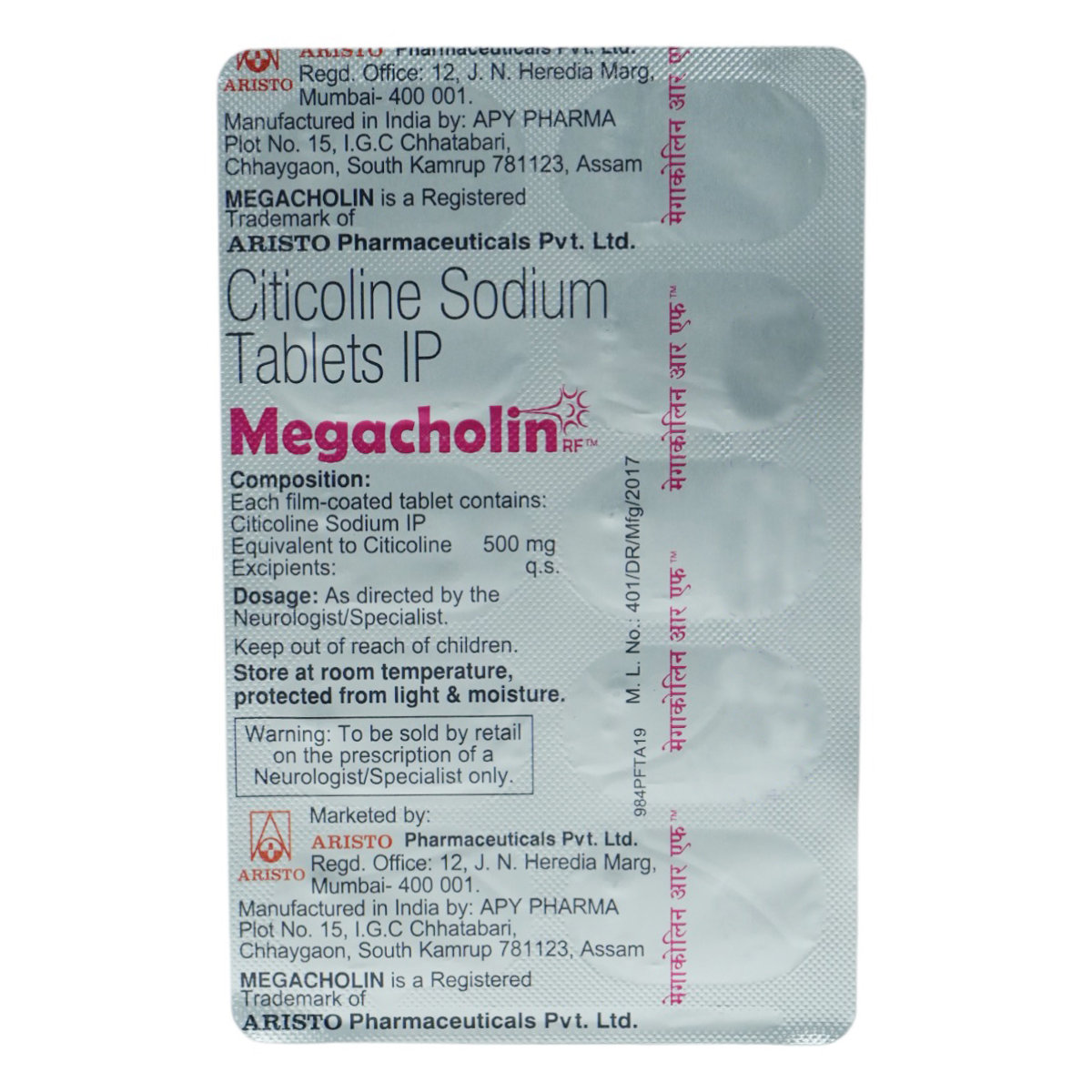Citicoline
About Citicoline
Citicoline is used to treat stroke, head trauma or injury, Alzheimer’s disease, Parkinson’s disease, and glaucoma. A stroke occurs due to an insufficient blood supply to the brain. Alzheimer’s disease is a progressive age-related memory loss.
Citicoline contains Citicoline, which is used to nourish and minimise damage to the nerve cells in various conditions associated with the brain. It increases the activity of the central nervous system (brain and spinal cord).
Citicoline may cause common side effects, such as nausea, constipation or diarrhoea, abdominal pain, headache, blurred vision, insomnia, hypotension, increased or decreased heart rate, and restlessness. Most of these side effects do not require medical attention. However, if the symptoms persist or worsen, consult a doctor immediately.
Before taking the Citicoline, let your doctor know about all the medicines or foods you are allergic to. If you are pregnant or breastfeeding, please tell your doctor so that your doctor can weigh the benefits and any potential risks before prescribing it to you.
Uses of Citicoline
• Ischemic Stroke: Citicoline is used during both the acute and recovery stages of ischemic stroke. It helps protect nerve cells from damage, supports cell membrane repair, and improves blood flow to the brain.
• Head Trauma or Brain Injury: Citicoline aids in restoring brain function following head injury by reducing symptoms like memory loss, dizziness, disorientation, and impaired concentration.
• Cognitive Disorders: Citicoline helps slow cognitive decline associated with Alzheimer's disease and vascular dementia by improving blood flow to the brain.
• Parkinson's disease: Citicoline may be used alongside other medications to improve motor and cognitive symptoms in individuals with Parkinson's disease.
• Vision Disorders: Citicoline helps enhance visual performance in patients with glaucoma or other optic nerve disorders by supporting nerve cell function.
Medicinal Benefits
- Citicoline contains 'Citicoline,' which belongs to the class of ‘psychostimulants.’
- It is used to promote brain health. It increases the activity of the central nervous system (brain and spinal cord).
- It is used to treat stroke, head injury, Alzheimer’s disease, Parkinson’s disease, and glaucoma.
- It protects the brain from neurotoxicity (damage to the brain).
- It acts as a precursor for phospholipids (present in the outer membrane of the nerve cell) and also stimulates phospholipid synthesis in the brain.
- It also stimulates blood flow and oxygen consumption in the brain.
- This promotes brain activity and enhances cognition, memory, and cognitive function in patients with progressive brain disorders.
- It accelerates the recovery rate in patients with neurological diseases (diseases affecting the brain).
- It can improve recovery in patients with disturbance in consciousness, in patients with head injury or any other problems associated with the brain, and who have undergone surgery.
Directions for Use
- Citicoline can be taken with or without food, as advised by your doctor.
- Your doctor will decide the appropriate dosage and timing based on your medical condition.
- Swallow Citicoline as a whole with a glass of water.
- Do not crush, break, or chew it.
Storage
Side Effects of Citicoline
- Nausea
- Constipation
- Diarrhea
- Headache
- Insomnia (trouble sleeping)
- Hypotension (decrease in blood pressure)
- Blurred vision
- Increase or decrease in heart rate
- Restlessness
Medicines Containing this Salt
View AllDrug Warnings
- Before taking Citicoline, inform your doctor about any allergies or hypersensitivity reactions to medicines or food.
- Let your doctor know if you have hypertonia (overactivity) of the parasympathetic nervous system (rest-and-digest system), intracranial hemorrhage (brain bleed), depression, or kidney, liver, or heart disease.
- If you are pregnant or breastfeeding, please tell your doctor so they can weigh the benefits against any potential risks before prescribing it to you.
- Citicoline should not be used in children below 12 years of age unless prescribed by a doctor.
- Keep your doctor informed about all the medicines you are taking before taking Citicoline to rule out any side effects or interactions.
Drug Interactions
Drug-drug interactions: Citicoline may interact with antiparkinsonian drugs (levodopa, carbidopa, and entacapone) and other nootropics (meclofenoxate, centrophenoxine).
Drug-food interactions: No interactions found.
Drug-disease interactions: Inform your doctor before taking Citicoline if you have hypertonia (overactivity) of the parasympathetic nervous system (rest-and-digest system), intracranial hemorrhage (brain bleed), depression, or kidney, liver, or heart disease.
Drug-Drug Interactions Checker List:
Safety Advice

Alcohol
unsafeCiticoline may or may not interact with alcohol. However, alcohol worsens neurological conditions. So, it is better to avoid consuming alcohol.

Pregnancy
consult your doctorCiticoline should not be taken during pregnancy unless prescribed by a doctor, as its safety and effectiveness in pregnant women have not been established.

Breast Feeding
consult your doctorCiticoline should not be taken while breastfeeding unless prescribed by a doctor, as its safety and effectiveness in breastfeeding mothers have not been established.

Driving
cautionCiticoline may cause dizziness, blurred vision, and a decrease in blood pressure. So, it is advised to exercise caution while driving or operating heavy machinery after taking Citicoline.

Liver
consult your doctorLimited information is available regarding the use of Citicoline in patients with liver impairment. Please consult your doctor if you have liver disease before taking Citicoline.

Kidney
consult your doctorLimited information is available regarding the use of Citicoline in patients with kidney impairment. Please consult your doctor if you have kidney disease before taking Citicoline.

Children
unsafeCiticoline should not be used in children below 12 years of age unless prescribed by a doctor, as its safety and effectiveness have not been established in this age group.
Habit Forming
Diet & Lifestyle Advise
- Consume green leafy vegetables like spinach, kale, and broccoli regularly. They are rich in folate, antioxidants, and essential nutrients that support memory and cognitive function.
- Eat a variety of non-starchy vegetables such as tomatoes, cauliflower, and bell peppers. These are high in antioxidants that protect brain cells from damage.
- Enjoy berries like blueberries, strawberries, and blackberries. Their flavonoid content may help improve memory and slow age-related cognitive decline.
- Include a handful of nuts daily, especially walnuts and almonds. They provide healthy fats, vitamin E, and brain-boosting plant compounds.
- Use olive oil for cooking or as a salad dressing. It contains heart-healthy monounsaturated fats that reduce inflammation and support brain health.
- Choose whole grains, such as oats, brown rice, and quinoa. These offer a steady release of glucose, the brain's primary energy source.
- Eat fatty fish such as salmon, trout, or sardines at least once a week. They are rich in omega-3 fatty acids, essential for brain cell structure and function.
- Stay well-hydrated by drinking enough water throughout the day. Dehydration can impair concentration, alertness, and short-term memory.
- Engage in regular physical activity, such as walking, swimming, or yoga. Exercise increases blood flow to the brain, enhancing mood, focus, and mental clarity.
- Avoid unhealthy habits such as consuming processed foods, sugary snacks, smoking, and excessive alcohol. These can have a negative impact on brain health over time.
Special Advise
- A mini-mental state examination (MMSE) may be performed to measure the patient's cognitive status (gaining knowledge and comprehension ability).
- It is a 30-point questionnaire, in which a score of 24 or more points indicates normal cognition.
Patients Concern
Disease/Condition Glossary
Stroke: Stroke, also called cerebrovascular (CV) stroke, occurs when there is a decreased blood supply to the brain due to the presence of a blood clot or leakage of blood vessels. The decrease in blood supply leads to a decrease in oxygen and nutrients, resulting in the death of brain cells. This condition leads to paralysis of the face, arm, or leg, slurred speech, headache, and difficulty walking.
Head trauma: Brain dysfunction due to trauma or injury to the head.
Alzheimer’s disease: Alzheimer's disease is a progressive and irreversible brain disorder that occurs due to degeneration or death of brain cells. The characteristic symptom of this disease is dementia, in which patients experience a decline in thinking, behavior, and social skills.
Parkinson’s disease: Parkinson’s disease is a progressive brain disorder that occurs due to decreased dopamine levels (a hormone responsible for motor function or movements) in the brain. The symptoms include tremors, impaired balance, difficulty speaking, decreased movement, and changes in writing.
Glaucoma: Glaucoma occurs due to damage to the optic nerve, which is responsible for vision. Abnormally high pressure in the eye causes damage to the optic nerve. This condition may progress to blindness if left untreated.
FAQs
Citicoline is used to treat stroke, head trauma or injury, Alzheimer’s disease, Parkinson’s disease, and glaucoma.
Citicoline contains 'Citicoline’, a psychostimulant or nootropic used to nourish and minimize damage to the nerve cells in various conditions associated with the brain. It increases the activity of the central nervous system (brain and spinal cord). It regenerates nerve cells by promoting the synthesis of phospholipids (forms neuronal membrane) in the brain. It improves learning, memory, judging, and thinking processes. It can improve recovery in patients with disturbance in consciousness in patients with head injury or any other problems associated with the brain and who underwent surgery.
Citicoline can cause insomnia (sleeplessness). However, not everybody taking Citicoline will experience this side effect. Inform your doctor if you notice sleep disturbances after starting Citicoline. Your doctor may adjust the dosage to minimize its impact on sleep.
Citicoline is possibly safe and may not show any toxic side effects. It is usually well-tolerated in patients when given in therapeutic doses (dose required to treat the disease).
Citicoline can be taken for the long-term when advised by a doctor. It can considerably improve memory, thinking, and behavioral skills when taken long-term in patients with brain disorders.
Parkinson's disease is a progressive brain disorder that occurs due to a decrease in dopamine (a hormone responsible for motor function or movements) levels in the brain. The symptoms include tremors, impaired balance, difficulty speaking, decreased movement, and changes in writing.
Citicoline is chemically identical to the cytidine-diphosphocholine (CDP-choline). CDP-choline is naturally present in the body, whereas citicoline is available as a dietary supplement.
There are no studies on the effect of alcohol on Citicoline. However, it is advised to avoid alcohol consumption since Citicoline is prescribed for Alzheimer’s disease, stroke, Parkinson’s disease, head injury, and age-related memory impairment, and alcohol worsens neurological conditions.
No, students should not take Citicoline because research indicates that Citicoline is effective only in age-related memory problems, in Alzheimer’s disease and memory problems associated with long-standing stroke. Furthermore, there is information on the use of Citicoline in children.
In cases of stroke caused due to blood clots, Citicoline can help them recover completely within 3 months. Also, giving Citicoline either intravenously (injecting into the vein directly) within 12 hours of having a stroke or daily for 7 days following the stroke can help the patient recover sooner.
Yes, Citicoline has neuroprotective properties that could help improve memory and cognitive functions in people with neurological impairments.
Citicoline may cause side effects such as nausea, headache, diarrhea, insomnia (trouble sleeping), blurred vision, and an increase or decrease in heart rate. Most of these side effects do not require medical attention. However, if the symptoms persist or worsen, consult your doctor immediately.
You are recommended to avoid using Citicoline if you are allergic to citicoline. If you have hypotension (low blood pressure), seizure disorders, heart disease, or are at risk of a hemorrhagic stroke, use it cautiously.
You are recommended to consult a doctor before taking other medicines with Citicoline to avoid drug interactions.
Store Citicoline in a cool and dry place at room temperature. Keep it out of reach of children.
